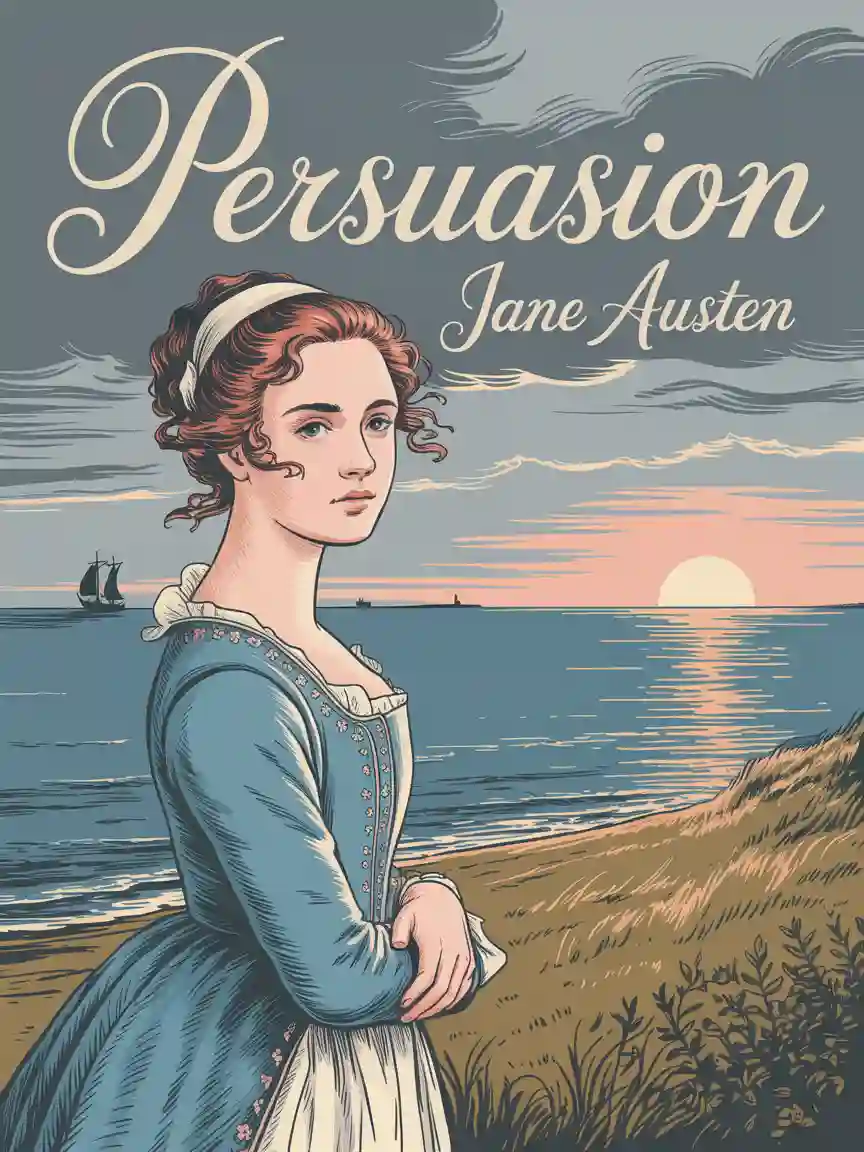CHAPTER 21
Going Aboard
It was nearly six o’clock, but only grey imperfect misty dawn, when we
drew nigh the wharf.
“There are some sailors running ahead there, if I see right,” said I to
Queequeg, “it can’t be shadows; she’s off by sunrise, I guess; come on!”
“Avast!” cried a voice, whose owner at the same time coming close
behind us, laid a hand upon both our shoulders, and then insinuating
himself between us, stood stooping forward a little, in the uncertain
twilight, strangely peering from Queequeg to me. It was Elijah.
“Going aboard?”
“Hands off, will you,” said I.
“Lookee here,” said Queequeg, shaking himself, “go ‘way!”
“Aint going aboard, then?”
“Yes, we are,” said I, “but what business is that of yours?
Do you know, Mr. Elijah, that I consider you a little impertinent?”
“No, no, no; I wasn’t aware of that,” said Elijah, slowly and wonderingly
looking from me to Queequeg, with the most unaccountable glances.
“Elijah,” said I, “you will oblige my friend and me by withdrawing. We
are going to the Indian and Pacific Oceans, and would prefer not to be
detained.”
“Ye be, be ye? Coming back afore breakfast?”
“He’s cracked, Queequeg,” said I, “come on.”
“Holloa!” cried stationary Elijah, hailing us when we had removed a few
paces.
“Never mind him,” said I, “Queequeg, come on.”
But he stole up to us again, and suddenly clapping his hand on my
shoulder, said—”Did ye see anything looking like men going towards that
ship a while ago?”
Struck by this plain matter-of-fact question, I answered, saying, “Yes, I
thought I did see four or five men; but it was too dim to be sure.”
“Very dim, very dim,” said Elijah. “Morning to ye.”
Once more we quitted him; but once more he came softly after us; and
touching my shoulder again, said, “See if you can find ’em now, will ye?
“Find who?”
“Morning to ye! morning to ye!” he rejoined, again moving off. “Oh! I
was going to warn ye against—but never mind, never mind— it’s all one, all
in the family too;—sharp frost this morning, ain’t it? Good-bye to ye. Shan’t
see ye again very soon, I guess; unless it’s before the Grand Jury.” And with
these cracked words he finally departed, leaving me, for the moment, in no
small wonderment at his frantic impudence.
At last, stepping on board the Pequod, we found everything in profound
quiet, not a soul moving. The cabin entrance was locked within; the hatches
were all on, and lumbered with coils of rigging. Going forward to the
forecastle, we found the slide of the scuttle open. Seeing a light, we went
down, and found only an old rigger there, wrapped in a tattered pea-jacket.
He was thrown at whole length upon two chests, his face downwards and
inclosed in his folded arms. The profoundest slumber slept upon him.
“Those sailors we saw, Queequeg, where can they have gone to?” said I,
looking dubiously at the sleeper. But it seemed that, when on the wharf,
Queequeg had not at all noticed what I now alluded to; hence I would have
thought myself to have been optically deceived in that matter, were it not
for Elijah’s otherwise inexplicable question. But I beat the thing down; and
again marking the sleeper, jocularly hinted to Queequeg that perhaps we
had best sit up with the body; telling him to establish himself accordingly.
He put his hand upon the sleeper’s rear, as though feeling if it was soft
enough; and then, without more ado, sat quietly down there.
“Gracious! Queequeg, don’t sit there,” said I.
“Oh; perry dood seat,” said Queequeg, “my country way; won’t hurt him
face.”
“Face!” said I, “call that his face? very benevolent countenance then;
but how hard he breathes, he’s heaving himself; get off,
Queequeg, you are heavy, it’s grinding the face of the poor.
Get off, Queequeg! Look, he’ll twitch you off soon.
I wonder he don’t wake.”
Queequeg removed himself to just beyond the head of the sleeper, and
lighted his tomahawk pipe. I sat at the feet. We kept the pipe passing over
the sleeper, from one to the other. Meanwhile, upon questioning him in his
broken fashion, Queequeg gave me to understand that, in his land, owing to
the absence of settees and sofas of all sorts, the king, chiefs, and great
people generally, were in the custom of fattening some of the lower orders
for ottomans; and to furnish a house comfortably in that respect, you had
only to buy up eight or ten lazy fellows, and lay them round in the piers and
alcoves. Besides, it was very convenient on an excursion; much better than
those garden-chairs which are convertible into walking sticks; upon
occasion, a chief calling his attendant, and desiring him to make a settee of
himself under a spreading tree, perhaps in some damp marshy place.
While narrating these things, every time Queequeg received the
tomahawk from me, he flourished the hatchet-side of it over the sleeper’s
head.
“What’s that for, Queequeg?”
“Perry easy, kill-e; oh! perry easy!
He was going on with some wild reminiscences about his tomahawk-pipe
which, it seemed, had in its two uses both brained his foes and soothed his
soul, when we were directly attracted to the sleeping rigger. The strong
vapor now completely filling the contracted hole, it began to tell upon him.
He breathed with a sort of muffledness; then seemed troubled in the nose;
then revolved over once or twice; then sat up and rubbed his eyes.
“Holloa!” he breathed at last, “who be ye smokers?”
“Shipped men,” answered I, “when does she sail?”
“Aye, aye, ye are going in her, be ye? She sails to-day. The Captain came
aboard last night.”
“What Captain?—Ahab?”
“Who but him indeed?”
I was going to ask him some further questions concerning Ahab, when
we heard a noise on deck.
“Holloa! Starbuck’s astir,” said the rigger. “He’s a lively chief mate that;
good man, and a pious; but all alive now, I must turn to.” And so saying he
went on deck, and we followed.
It was now clear sunrise. Soon the crew came on board in twos and
threes; the riggers bestirred themselves; the mates were actively engaged;
and several of the shore people were busy in bringing various last things on
board. Meanwhile Captain Ahab remained invisibly enshrined within his
cabin.





